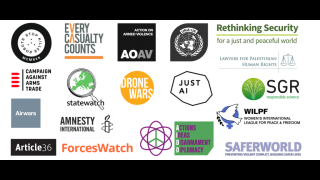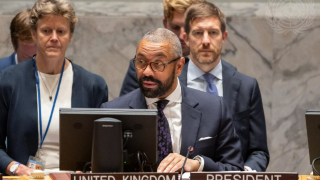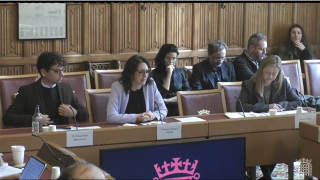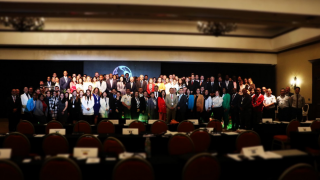
Next week, the UK joins more than 70 countries in Geneva for an international meeting of the group of governmental experts (GGE) on Lethal Autonomous Weapons (LAWS), or as they have come to be known, ‘killer robots’. UNA-UK has repeatedly called on the UK Government to play a constructive role in these meetings, and to support negotiations for a new framework to prohibit the development of killer robots.
The meeting of the GGE, as a part of the Convention on Certain Conventional Weapons (CCW) from 27 – 31 August, builds on a meeting earlier this year concerned with defining “characteristics” or “common understandings” of LAWS, as well as the touchpoints of human-machine interaction. The CCW works on the basis of consensus and any regulations or proposals that emerge will need to command widespread support. While a vast majority of the 82 countries present at the previous meeting are supportive of beginning work in 2019 on a legally-binding instrument to regulate LAWS, momentum for a new framework faces tough opposition from states with advanced military hardware, including France, Israel, Russia, the UK and the US. These states have expressed the belief that current international law is sufficient.
The UK Government’s mixed messages
The UK’s position, as stated in correspondence from the Foreign and Commonwealth Office on 8 December 2017, is that Britain “does not possess fully autonomous weapon systems and has no intention of developing them” and that “existing International Humanitarian Law is sufficient to control and regulate killer robots.”
The UK governments working paper for the GGE, reiterated Britain’s position that existing international law is sufficient regarding the “design, delivery, operation, regulation and disposal of weapons systems,” but indicated a welcome degree of willingness to engage regarding the delivery and assurance of human control. Nevertheless, we remain disappointed by the government’s unwillingness to cooperate productively with international partners on a treaty. A more in-depth analysis of the UK’s position regarding LAWS can be found in our most recent report: Killer Robots: Who is making the decision?
Civil society takes aim
UNA-UK has been an active member of the Campaign to Stop Killer Robots from the beginning and recently joined the founders of Google’s DeepMind, SpaceX, Tesla and a host of civil society organisations in signing the Future of Life pledge seeking a ban on LAWS.
Today, we are launching our killer robots brief. We consider the prospect of killer robots through an analysis of current debates and opportunities for the UK to play a constructive role. We are calling on the UK to do just that at next weeks meeting and to support the growing calls to start negotiating a new framework to prohibit the development of killer robots. The inconsistencies within the Government’s position lead to an unwillingness to cooperate productively with international partners on killer robots. This could significantly undermine the Prime Minister’s stated ambition for a Global Britain which is a world leader in ethical AI, as she declared in her January 2018 Davos address.
Act now
We are asking all our members, supporters and local UNAs to contact their MPs to urge them to call on the government to cooperate with the international community and join the growing number of states supporting a ban on killer robots.
We’ve launched a killer robots campaign hub with all the necessary tools to help you campaign on this vital issue.
As an active member of the Campaign to Stop Killer Robots, UNA-UK will continue to campaign for the UK to support a prohibition.
Read the Future of Life pledge and find the full list of signatories here.
And read our briefing here.
Photograph: Ministry of Defence computer graphic, licensed under the Open Government Licence v3.0. Credit: Crown Copyright






